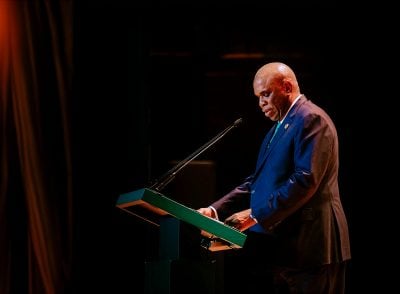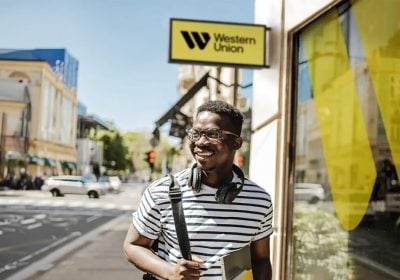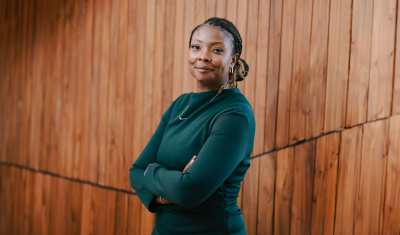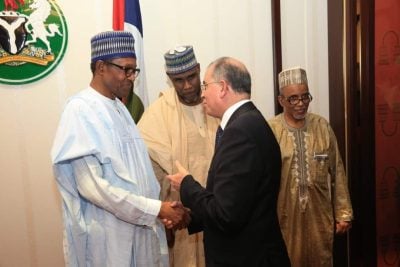
For two decades, at Natixis, you were one of the most powerful and successful executives in a global financial institution, then you left it all to return to Africa as head of BOAD. Why?
I have never put aside nor forgotten, who I am and where I come from. I have always kept abreast of everything occurring on the continent. I was aware that my stint at Natixis and my education would provide me with a unique insight into the mechanics of the global economy.
I wanted to bring this experience and see how it could apply to the outstanding challenges of Africa, bearing in mind the continent’s incredible diversity, its human capital, natural resources and, moreover, its ability to evolve and change.
I wanted to be part of this moment and use my expertise to help foster this promising future. While working from Cannon Street, in the heart of the City – one of the world’s s most important financial centres – I was eager to perceive the direct impact of my daily activities on the lives of people, to work for more tangible and concrete finance projects – where one can see and measure the effects on people’s lives.
BOAD’s core mission is to foster the integration and the transformation of the eight (8) countries of the WAEMU region enabling its sustainable and inclusive development.
Our work truly consists in addressing the needs of the communities we serve, thus creating added value and change in their lives, particularly in these issues, lack of power autonomy, insufficient access to education, housing shortages and dire unemployment.
Major strategic challenges also remain: enabling women economic empowerment, accelerating gender equality, building a secure and prosperous future for our youth, through full access to education, learning and skills opportunities and job creation.
Most of these issues have been tackled and overcome by many countries around the world… I am more than confident that our economies are at a critical juncture, a point in time, to do the same and achieve the best results for the future.
As the bank celebrates its 50th anniversary, can you summarise its achievements in the region?
There is much the bank can acknowledge and be proud of. We have invested 14 billion USD (8561,5 billion CFA) in the region’s economies, enabling access to electricity, road construction and other infrastructure, all of which have improved social services like health, education and access to potable water.
BOAD’s operations and programs are positive and impactful on people’s lives, ensuring better living conditions across our region.
The world is undergoing what is now termed polycrisis – a series of contiguous crisis – that has driven up the cost of living and raised interest rates across the board. In this situation, how do you see the role of development institutions like BOAD?
As you saw during the Covid-19 induced lockdowns, it was the development institutions that sprang into action and supported countries to weather the storm, while keeping economies afloat.
Africa’s Development Finance Institutions (DFIs) stepped into the breach and provided timely support. As aid is becoming increasingly constraint and the cost of borrowing for Africa even higher, we realise that we need to rely on our own resources, innovative approaches and mutual cooperation with Multinational Financial Institutions (MFIs) to raise the sort of finance we absolutely require to carry out critical programmes.
Capital is key to sustaining our own development, and financial resource mobilisation is a constant challenge. Heading BOAD, it became clear to me that we need to raise affordable capital if we are to properly finance our essentially-needed projects.
This involves a multi-pronged approach. We are in constant negotiation with our foreign partners, the regional and international capital markets and investors in an effort to diversify our sources and secure more favourable fundings.
We are not only working to give investors’ confidence, but also to create optimal conditions allowing sustainable growth in the national and local economies.
The ideal situation comes when African DFIs, with their accurate knowledge of the local fields and MFIs, owning a greater capacity to raise and disburse capital, work closely together to finance projects most efficiently.
BOAD has the capacity have the capacity to originate – we know our region and the predicaments it faces.
Therefore, I strongly believe that institutions with better ratings should work hand-in-hand with us and help de-risk our portfolios, as we are the natural risk-takers in our countries.
A global approach
Congratulations on being elected Co-President of the influential International Development Finance Club (IDFC) becoming the first African to attain this position. Will this give you greater muscle to help raise funds and otherwise support Africa’s development?
First, a little explanation of what the International Development Finance Club (IDFC) is all about.
Created in 2011, it’s the leading international group of 26 national and regional development banks, most of which operate in emerging markets. It is the world’s largest provider of public development and climate finance, with combined assets estimated at $4,000bn with annual commitments in excess of $800bn, including $170bn a year for climate finance.
Our main objective as IDFC members, is to act as a unique platform to promote and leverage sustainable development investments worldwide.
Alongside Javier Diaz Fajardo, chairman of Bancoldex, Colombia’s Bank of Foreign Trade and co-president of the IDFC Club, we aim at generating synergy, achieve consistency of approach among members and focus more sharply on results, allowing the Club to benefit from the complementary mandates, geographical positioning and shareholding structures of our two institutions.
We both see it as a perfect opportunity to address global issues with local solutions from a development bank perspective. We therefore bring new perspectives to the IDFC co-presidency, relevant for the future generations and fit for the fight against climate change, while achieving the sustainable development goals. Our mission encompasses the achievements of the IDFC and the commitments of its members to further support the economic frameworks of the countries with which we are engaged, while reducing inequalities and promoting environmental sustainability.
Seating at the head of the table of such an organisation is not only a timely acknowledgement of the growing importance of our continent in global affairs, but further provides me a world-wide platform to put Africa on the forefront, to promote public development banks, align these institutions to the 2030 climate agenda, and, most importantly, promote a new, more equitable global financial architecture addressing our regional needs.
The Djoliba Plan
It is clear that your seat at the head of the IDFC could well set into motion an era defining period for our development institutions. Returning to more organisation’s issues, can you outline your current five-year Plan?
I’m very enthusiastic about the 2021-2025 Djoliba Plan. It was named after the Niger river, which flows through the WAEMU region. This river links people and communities in many different ways and also provides a direct link to the Atlantic Ocean and what lies beyond.
In essence, the plan is to raise economic performance and output by deepening investment in vital sectors such as transport, electrification, affordable housing and digitalisation.
The idea is to create value chains throughout the sub-region, thus accelerating the pace of economic development and raise output and trade.
These are the stepping stones to wealth creation and ultimately to a more prosperous region.
We are targeting an additional €5bn over the period of the Plan, or an additional €1.2bn per year.
However, figures will go up in line with the bank’s own capitalisation drive. We intend to raise an extra CFA 554.35bn ($910m), which will give our institution the necessary levers to implement its 2021-2025 Strategic Plan and maintain its debt and capital adequacy ratios at comfortable levels.
But the Plan goes further than the financing framework. We are implementing organisational restructuring and changing the model of the bank to make it more flexible, efficient and able to adapt quickly and more decisively in our interventions and disbursements.
In terms of activities, we hold thematic workshops on our strategic areas and meetings with the private sector and investors, we’re planning a summit highlighting our Plan and vision to national decision makers and Heads of State.
That said, in the years to come, BOAD, like other development financing institutions, will continue to play its counter-cyclical role to support the development efforts of its member states, which are increasingly faced with challenges such as budgetary difficulties.
“Our institution must have its own funds and an excellent financial structure that allows it to increase its resources,” Ekué asserts.
Flexibility and pragmatism
While the aims and goals of your organisation continue on the same course as from inception, have you had to adapt your operational approach to deal with the vastly different conditions that now prevail?
There is no doubt that the series of crisis that have hit the world and Africa in such quick succession or simultaneously has meant that we cannot continue to operate as usual.
We need change. What is clearly needed is innovation and adaptation, transactions at the cheapest possible funding, to originate the best assets for the benefit of our people.
This means pragmatism. I’d like BOAD to be seen and known as the premiere institution to bring the best solutions to the table, to find the right tools for our clients and shareholders.
It’s a different mindset, a new paradigm, enabling us to achieve the best results. This approach requires a buy-in from all our staff and I have been impressed by the high calibre of the Bank’s teams. They are agile, responsive and open to new ideas, showing their commitment to excellence.
This makes me confident and should all give us faith and hope in the future and success of BOAD.
Want to continue reading? Subscribe today.
You've read all your free articles for this month! Subscribe now to enjoy full access to our content.
Digital Monthly
£8.00 / month
Receive full unlimited access to our articles, opinions, podcasts and more.
Digital Yearly
£70.00 / year
Our best value offer - save £26 and gain access to all of our digital content for an entire year!
 Sign in with Google
Sign in with Google 



